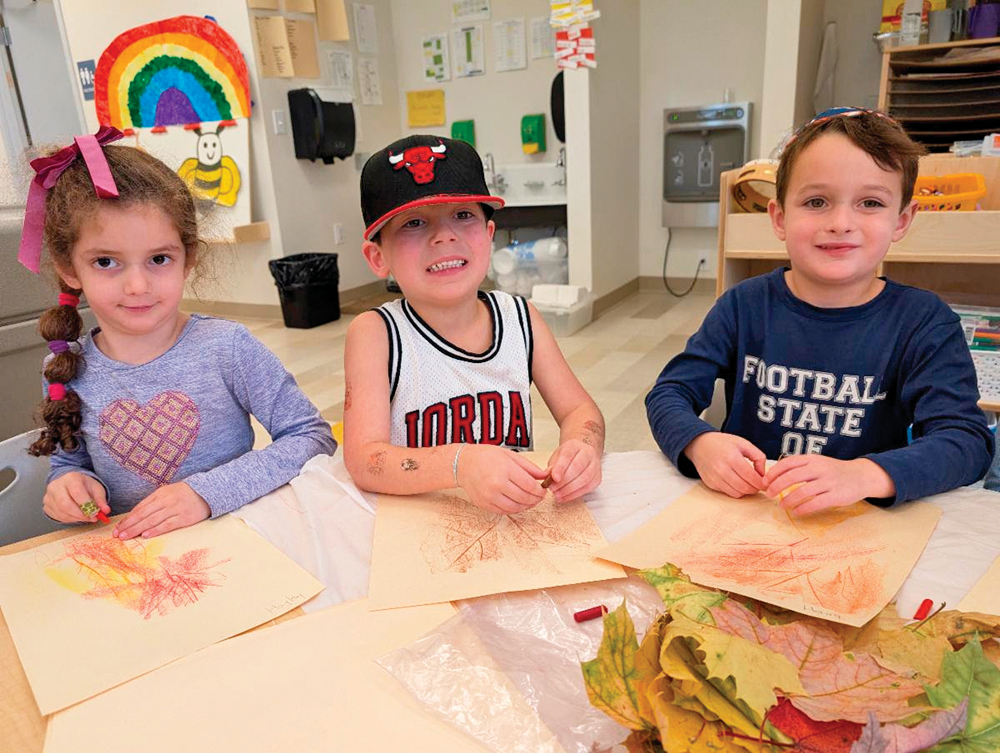


In perhaps most other cultures, if a child reached college age and immediately moved out of the country, resettled in another nation and joined their army, people might consider it highly unusual, eccentric and perhaps even disloyal. They might also wonder if there was something seriously wrong in the family home.
In the frum communities of the United States, however, we consider such a person, a chayal boded, a role model and a hero—both for Israel and for America.
Eitan Hornstein, formerly of Highland Park, certainly doesn’t see himself that way. And he’s a little mystified that anyone would consider him special for his decision because, well, it just made sense.
Hornstein currently serves as a corporal in the 411th Battalion of the Israel Army’s Artillery Corps. He is a graduate of the Rabbi Pesach Raymon Yeshiva (RPRY) in Edison and the Torah Academy of Bergen County (TABC).
As he recounts, he first considered making aliyah in the summer between his sophomore and junior years in high school. His plans grew more serious in his junior and senior years. He wanted to take a different path than the traditional gap year < college < work world he saw many of his older friends and fellow yeshiva students taking. He decided that he was capable of adapting and serving in the Israeli army.
One thing that made Eitan’s decision easier was that fact that his older sister Liba had made a similar decision earlier and had adapted well to Israeli society and the army. Another factor was that his parents, Susan and Justin, were thoroughly supportive of Liba’s decision and later of his.
As Eitan remembers, his mother said (when someone else asked): “We sent our kids to Zionist schools, where they often discussed the value of making aliyah and serving in Tzahal (the Israeli Defense Forces). This is a direct progression of those teachings so of course we’re proud of them!”
After graduating TABC, Eitan enrolled in Lev HaTorah, a Religious Zionist yeshiva in Beit Shemesh with a relatively new (established Oct. 2017) hesder yeshiva program. After students at Lev HaTorah complete the regular shana aleph (year one) program, the yeshiva offers a track of its shana bet (year two) program that includes classes that prepare students for army life such as halacha in the army, the teachings of Rav Kook, army ethics, and sessions with a psychologist on mental preparations. The yeshiva also encourages students in that track to work out once a week, to get in shape physically.
The students are then drafted into the Israeli army for between 16-24 months. This coming fall will be the yeshiva’s first year offering a formal shana daled (year four) program for post-army students. Students may return for a fifth year as well.
From his yeshiva, 14 other students besides him went into army service in the year he enlisted, but only three—one from Brooklyn, one from Monsey and one from Australia—actually made aliyah and took the hesder route like he did. While in the army, the yeshiva provides students on this track with an apartment near the school, free meals in the yeshiva, and an av and eim bayit who stock the students’ refrigerators and pantries with food, arrange for the apartments to be cleaned, and coordinate Shabbat and holiday meals for the soldiers.
Eitan reports that basic training is not so much physically hard as it is mentally hard, because “it’s basically four months of people yelling at you.” One challenge to a yeshiva student is that the Israeli army is generally a non-frum environment. Yet in hesder units, many of the soldiers and commanders are either frum or come from frum homes, making the frum soldier’s needs and perspective more readily understandable.
Eitan points out that while army life is very rule-driven, this is a big benefit to religious soldiers. Overall, soldiers get little time to themselves. Yet religious soldiers are allowed 40 minutes for Shacharit, 15 minutes for Mincha, and 15 minutes for Maariv. They are also allowed one day a month as a “yom yeshiva,” and the army frequently schedules shiurim on the base.
Eitan acknowledged that Israeli army life is not easy, and for some, being a chayal boded may come with added difficulties. But he is quick to point out the many added benefits of a chayal boded. He deeply enjoys the sense of family and camaraderie with his fellow soldiers and their community at the yeshiva. Additionally, the army provides every chayal boded a month off, with paid airfare, to visit their parents; a higher salary; 150 shekel credit at supermarkets; gift cards to local stores and other gifts before chagim; a yom siddurim every month or two to take care of errands like laundry and going to the bank; and the army pays the rent on their apartments. And then there are the benefits all soldiers enjoy, such as a weekend off every other week and an army ID that gets them free bus rides and discounts at many stores and restaurants.
Despite his demurral, Eitan is a role model for the Highland Park/Edison community, as his former RPRY rebbe and parents’ rav, Rabbi Steven Miodownik, readily attests. “Young men and women like Eitan who serve the State of Israel and the Jewish people with such enthusiasm and love are an incredible source of pride and joy for us. When we recite the misheberach for chayalei Tzahal in shul every Shabbos, I don’t have to imagine faceless soldiers in uniform because the faces of so many young men and women from our community flash before my eyes and make the tefillah real and palpable.”
Eitan is both proud of and practical about his army service. “I thought this was important to do so I know I’m in the right place. And it’s helping me better understand Israeli society, integrate more smoothly, and improve my Ivrit. So it’s a plus in many ways.”
By Harry Glazer













